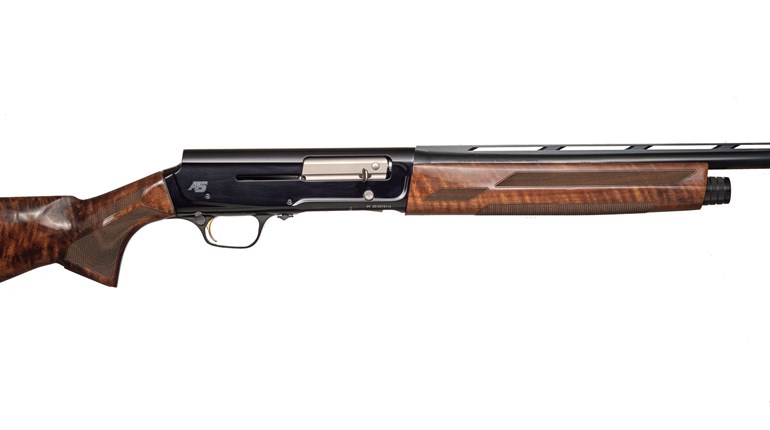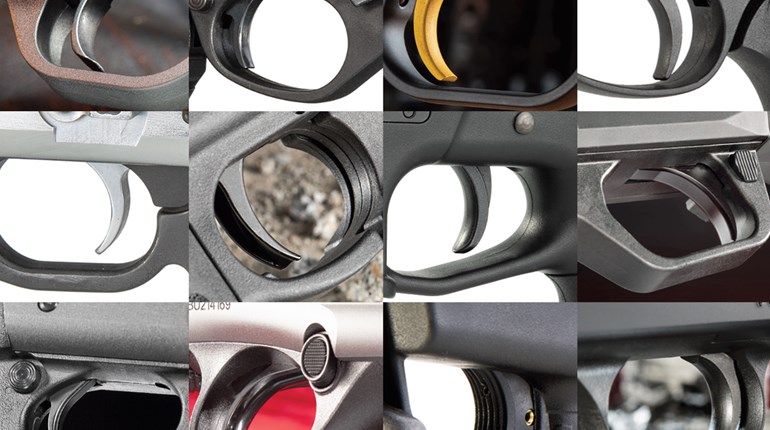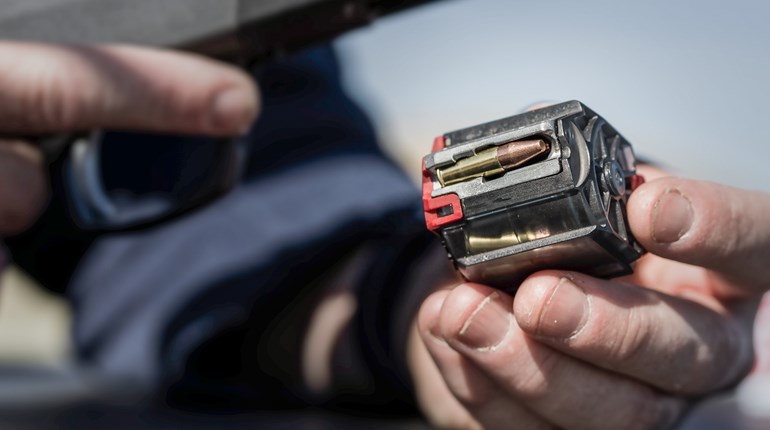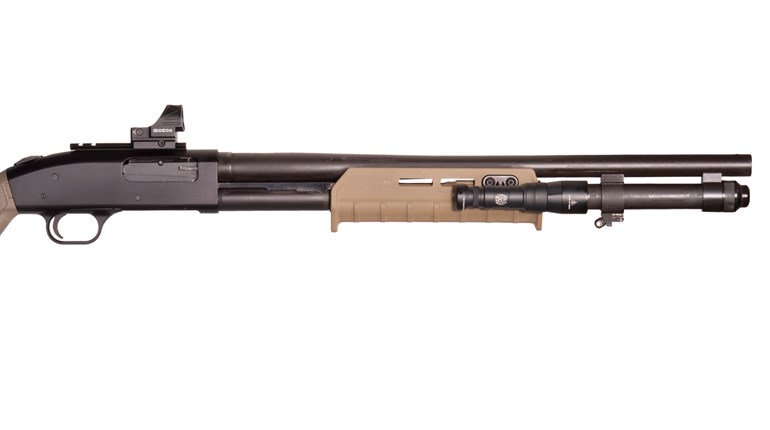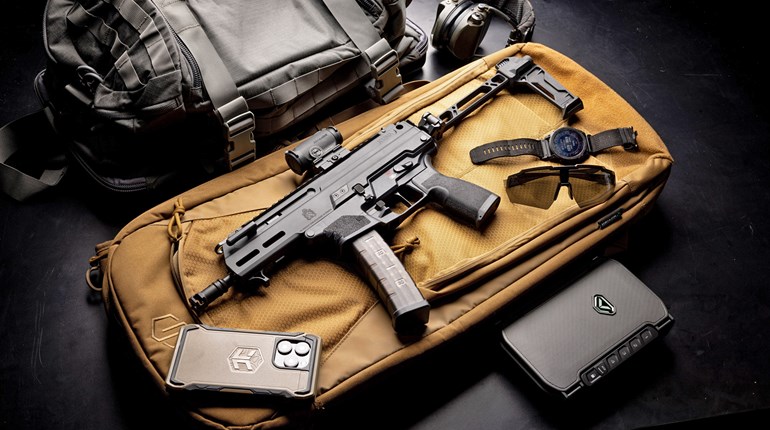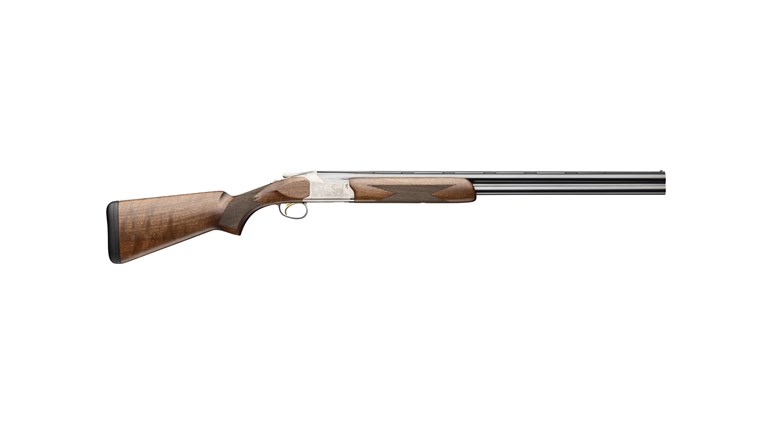
Fact is, tactical shotguns haven’t evolved all that much over the last century. The majority of professionals still use John Browning-inspired Benellis, Mossberg 590s, Remington 870s and other variants for their ease of control, familiarity and reliability under duress—despite these guns’ shortcomings. But, if a few advancements from the last couple years bear out, all of that could be changing and changing fast. Indeed, it looks as if the Golden Age of the tactical shotgun is upon us. Before we get ahead of ourselves, though, let’s take a look at where tactical shotguns have been.
In 1893, Browning invented the precursor to his famous 1897 “Trench Gun,” an external-hammer-fired pump-action that wouldn’t be all that much of a handicap if it were used today. The very next year, Browning invented what was then the biggest advancement in shotgun technology to date in the Auto-5. Those guns are still in use and even coveted by hunters. The decades that followed brought side eject, bottom-loading actions, extended magazines, recoil-reducing devices and gas-operated semi-automatics. By the 1980s Benelli perfected its revolutionary inertia action that could handle 2¾-, 3- and 3½-inch shells without adjustment.

In 1979, Franchi introduced its hybrid semi-automatic/pump-action SPAS-12 tactical shotgun that reduced the doubt many operators harbored about semi-auto reliability. It held eight rounds, offered models with a folding stock and was so menacing-looking that Bill Clinton banned it in 1994. (In 1989, the Rhodesian-invented, “Street Sweeper” by Armsel was introduced, but it was banned in ‘94 also. Although this drum-fed 12 gauge was awesome in theory, it probably wouldn’t have the mystique it garners today had it not been banned because it had many problems.) Then came factory pistol grips, screw-in choke tubes, ghost-ring sights and oversize controls.

For the next 20 years, not a lot happened in the way of shotgun evolution. Perhaps one of the most underrated advances occurred in 2010 with Remington’s Versa Max gas action that used the chambered shell to regulate gas pressure, making a better, simpler, mousetrap.
Of course, there were other radical designs—such as the fully automatic AA-12 among other concepts, but many were banned and so they are all but invisible to folks like you and me. The Saiga-12 was designed after the AK-47 to provide a fighting platform in a shotgun. While its buttstock is rather uncomfortable, and its mag-fed design not always reliable, this Russian shotgun has some promise and is still evolving, but it hasn’t represented any new way of thinking since 1947.
No doubt, ATF rulings have prevented many manufacturers from pushing the envelope due to the lack of commercial sales that would result, but at least a few began thinking outside the box. In 2011 and 2012 the Kel-Tec and UTAS companies introduced bullpup-style tactical shotguns (KSG and UTS-15, respectively) that used twin magazine tubes to offer 15-shot pump-action guns. Both are novel, but have had quirks, and they kick like hell thanks to the straight-line, hard-plastic stocks. Still, they raised the bar and highlighted the fact that shotgun technology was lagging way behind rifles.
In 2016 some genius with a rule book figured out that a shell-firing arm that is made as a pistol can have a barrel shorter than 18 inches and be defined as a “firearm” and not a “Short Barreled Shotgun.” This basically means it’s legal without a tax stamp, and therefore Black Aces Tactical, Mossberg and Remington began production. Mossberg’s resulting Shockwave that features a bird’s head grip is popular and concealable. However, because of its small size it can only hold a few shells, plus it is hard to control.

However, Aguila Ammunition offers its 1¾-inch Minishell, which, when combined with OPSol’s $17 mini-clip that allows the Shockwave to cycle them, turns the gun into a manageable nine-shot pump. This new firearm has half the recoil of standard buckshot loads with double the energy of a .45 ACP—with the spreading pattern of a shotgun. Semi-auto versions are sure to come. At any rate, these efforts seemed to spur manufacturers further.
Indeed, 2017 was the year of the tactical shotgun. Mossberg and Remington introduced magazine-fed shotguns. Mossberg’s 590M is available with five-, 10-, 15- and 20-round mags. While the 20-round variants are unwieldy, it now takes a user 2 seconds to load 20 additional shells in a traditional, easy-to-shoot and reliable gun. It’s a huge deal. Mossberg introduced the same technology in its Shockwave, so now consumers can choose a 14-inch gun that holds 21 shotshells. Likewise, Remington’s Tac-14 is now available with six-round mags. In the time it takes to load one or two rounds in a tube magazine, you can load six shells in a magazine. That’s something.

Meanwhile, other companies have introduced interesting, envelope-pushing guns. One is SRM Arms with its revolutionary 1228 shotgun, reviewed here on our website. This 33-inch gun features a drum-style magazine/module with four tubes, each holding seven rounds of Aguila Minishells. When one tube is depleted, the user can rotate the module in less than a second. After all tubes are emptied, the entire module can be quickly replaced with a fresh one. Perhaps best yet, it’s a lightweight, delayed-roller semi-auto with ambidextrous controls. The Minishell keeps recoil at bay and controllable.

IWI’s Tavor TS12 gas-action semi-automatic is the other. At 28 inches long with a look right out of “Star Trek,” it certainly looks a century ahead of the Winchester ’97. Like the SRM, it features a rotating drum mag/module that holds 15+1 rounds. Because I haven’t fired it yet, I can’t report on its feel or reliability. But, if it retains Tavor’s reputation for quality and innovation, it will represent significant advancement.
Even as I write this, more shotguns with novel innovations are coming. We may well be in the Golden Age of the tactical shotgun.










